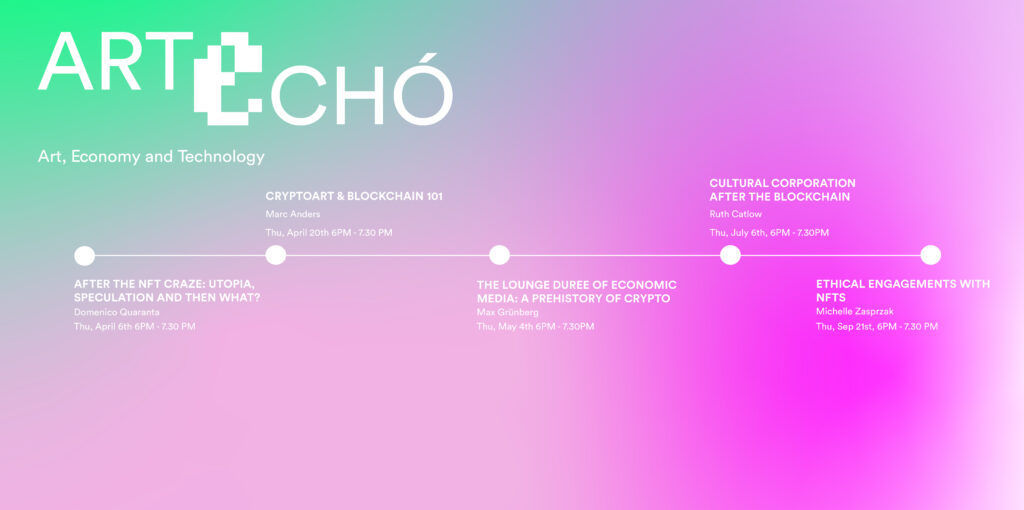

The Longue Durée of Economic Media. A prehistory of Crypto
Lecture by Michelle Kasprzak
14 September – 6PM – 7.30PM
The possibilities afforded by blockchain seem to lead us into new territory and offer a unique language for describing interaction: trustless, decentralized, self-sovereign, and so on. Despite this veneer of the new, the basic aims behind many of the communities formed around blockchain technologies strive to meet timeless human needs for connection, mutual aid, and creative expression. Technology is once again summoned to regulate, temper and de-risk human behaviour, which is far too simplistic.
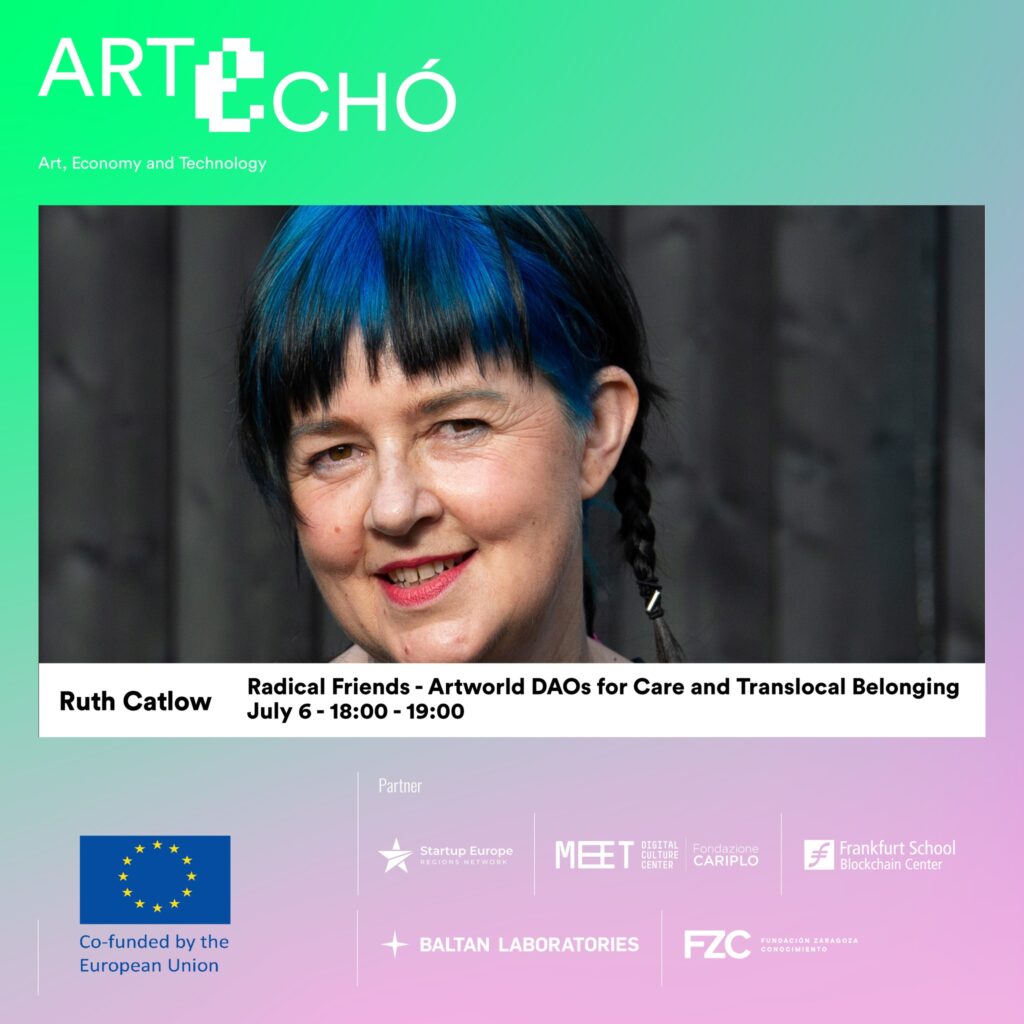
Artworld DAOs for Care and Translocal Belonging | Radical Friends
Lecture by Ruth Catlow
6 July 2023 – 6PM – 7.30PM
Translocality changes the way we think about the places, people and cultures to which we belong as a result of globalisation, migration and hyperconnectivity. It specifically describes the fact that we all live in multiple layered and interconnected localities – both physical and online – all at once. And so the cultural political complexity associated with the question of where we come from is intensifying, along with questions about territory, who rules us, and by which systems of governance.

Artworld DAOs for Care and Translocal Belonging | Radical Friends
Lecture by Denis ‘Jaromil’ Roio
22 June 2023 – 6PM – 7.30PM
In the last couple of decades, planetary-scale computation precipitated the ongoing transformation of existing jurisdictions and disciplinary realms, a trend that is both depicted and tackled by the notion of “algorithmic sovereignty”. This talk will address such transformations with particular attention to the web3/crypto sphere and propose practical and strategic solutions to develop a space for “digital commons” and to strengthen democracy against new aggressive forms of privatization, exploitation, and centralized control.
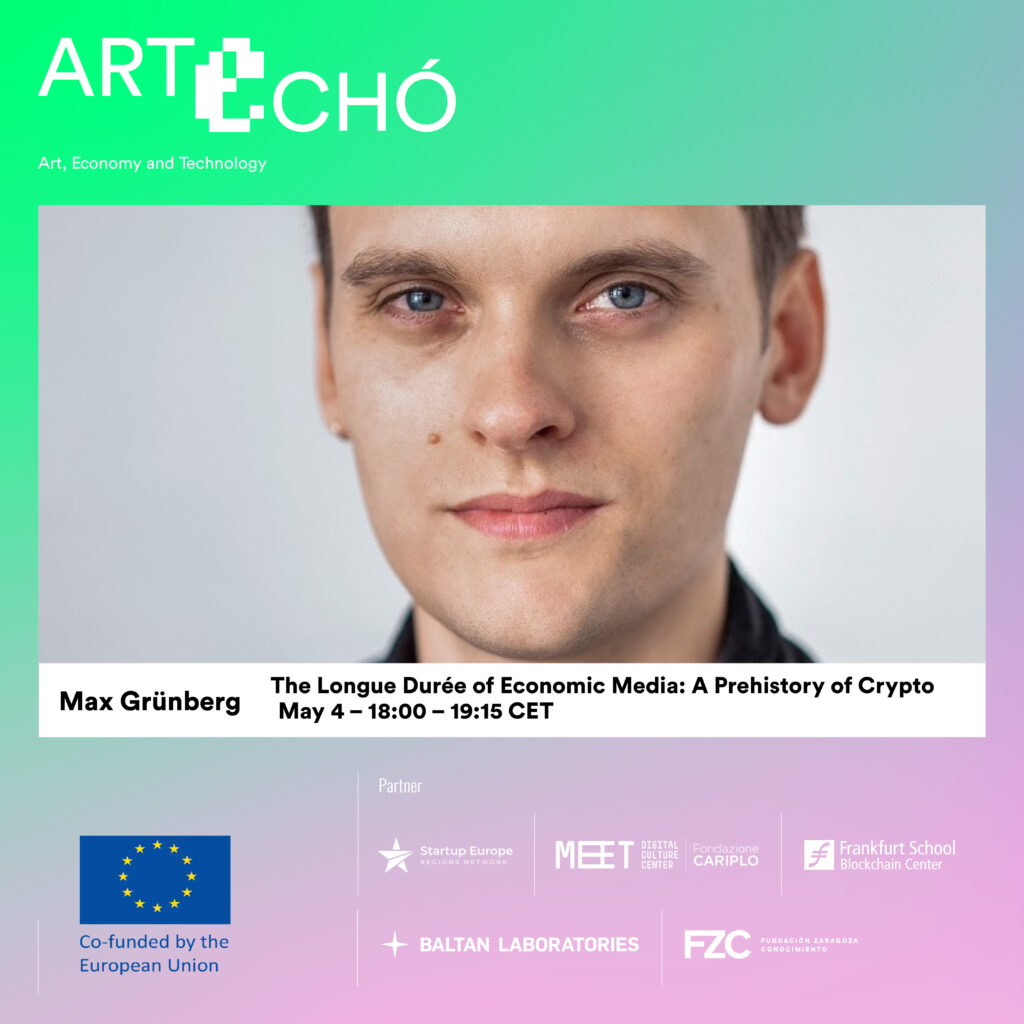
The Longue Durée of Economic Media: A Prehistory of Crypto
Lecture by Max Grünberg
4 May 2023 – 6PM – 7.30PM
In this session, we want to explore the long durée of crypto by grounding it in the history of money and accounting technologies. By situating both its anarchocapitalist and mutualist current in our material past, we will obtain a better understanding where it might lead us if the hypothesis crypto advances were ever to be delivered on a technical level. In view of this, we will interrogate the functions of money and competing explanations of its origin to demonstrate how monetary order and property relations have always been intertwined with statehood. Money might have been haunted by a central authority since its very conception.
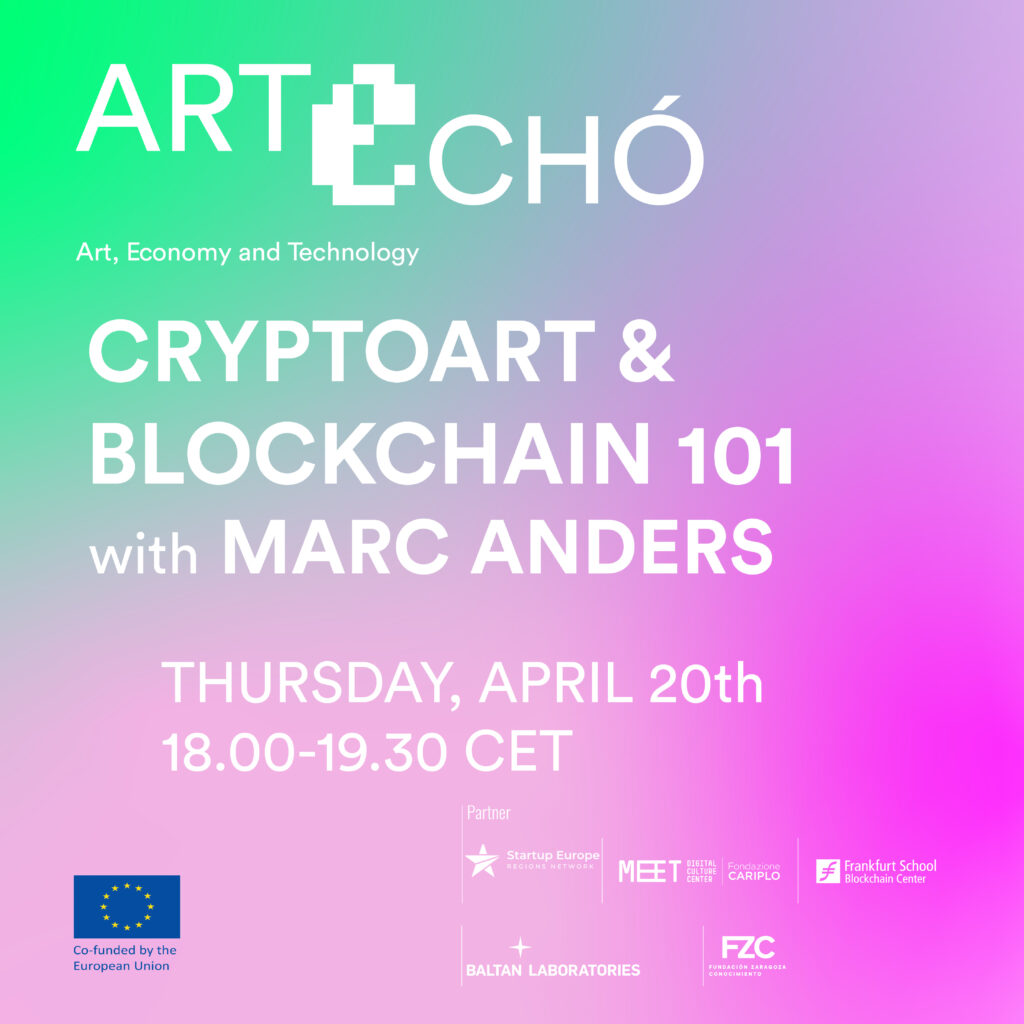
Cryptoart & Blockchain 101
Lecture by Marc Anders
20 April 2023 – 6PM – 7.30PM
The emergence of blockchain technology has created new opportunities for artists, creators, and collectors. Non-fungible tokens (NFTs) have revolutionized the way we think about ownership and provenance in the digital world, allowing for the creation and trade of unique digital assets that are verifiably scarce and authentic.
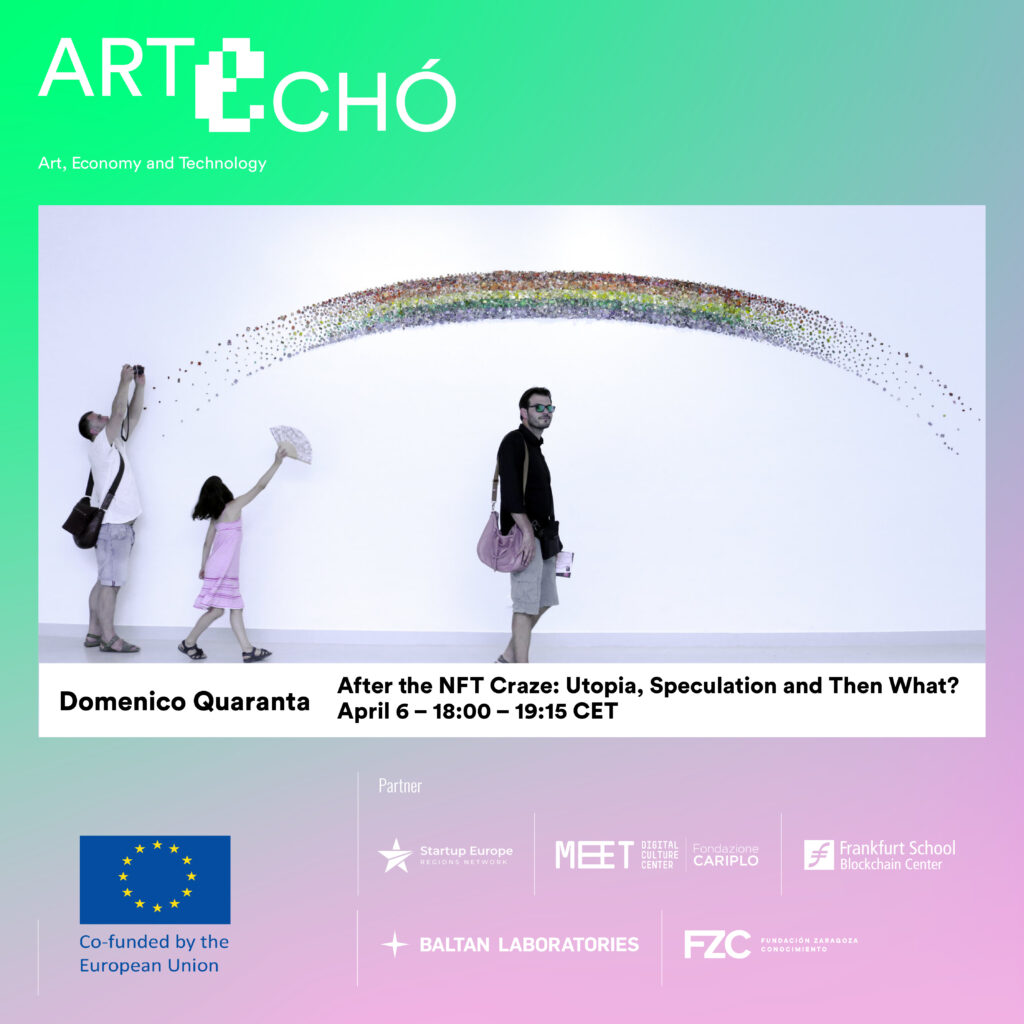
After the NFT Grazie: Utopia, Speculation and Then What?
Lecture by Domenico Quaranta
6 Aprile 2023 – 6PM – 7.30PM
Now that the bubble has burst, many questions arise about the whole techno-social infrastructure and the artistic practices emerging from it. Is speculation somehow intrinsic to the NFT environment? Is it possible to use blockchains as a means of authentication and to creatively experiment with smart contracts without indulging in the speculative behaviours typically associated with crypto? Is there a future for NFTs without WAGMI? How can art and artists have a role in criticising and reshaping the Web3 scenario?